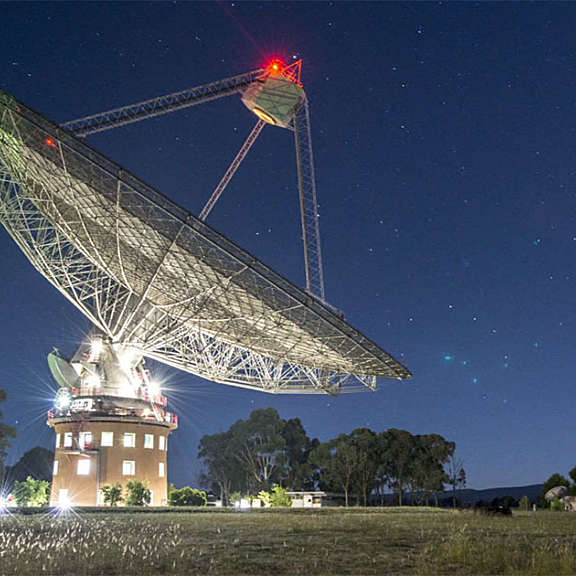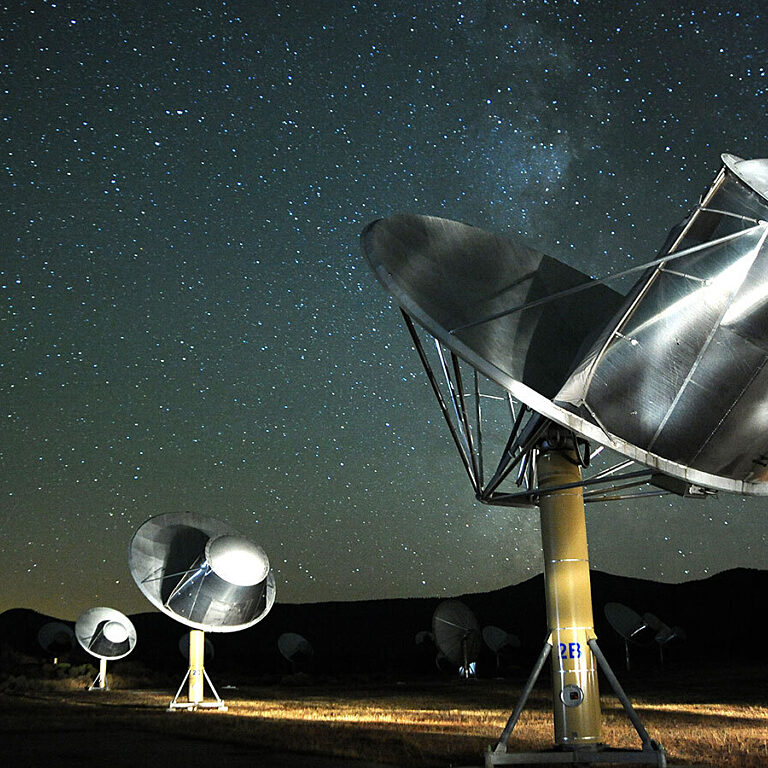All
All
Stories, updates, insights, and original analysis from The Planetary Society.
Weaving together a picture of the Cosmos
When we combine data sources, collaborate with each other, and invite artistic perspectives, we can better understand the Universe we live in.
Planetary Society Reacts to Loss of Arecibo Observatory Radio Telescope
Arecibo helped us explore the cosmos and our solar system, search for life, and defend Earth from potentially dangerous asteroids.
The search for extraterrestrial intelligence is getting a signal boost
It's all thanks to renewed interest from NASA and a private effort to scan the skies using an array of 64 radio telescopes.
Is There Anybody out There?
The Planetary Society has supported SETI, the search for extraterrestrial intelligence, practically since our founding in 1980. Learn the past, present, and future of SETI.
Doing SETI Better by Understanding Ourselves
One of the reasons SETI is hard is that we don’t know exactly what we are looking for, and part of that difficulty is that we still aren’t sure of who we are. An astronomer and an anthropologist team up to explore how cultural myopia shape what we can find in the cosmos.
Let’s be careful about this “SETI” signal
Several readers have contacted me recently about reports that a group of international astronomers have detected a strong signal coming from a distant star that could be a sign of a high-technology civilization. Here’s my reaction: it’s interesting, but it’s definitely not the sign of an alien civilization—at least not yet.
Back on the Rails with OSETI
The Planetary Society sponsored all-sky optical SETI search at Harvard University went off the rails, telescope roof rails that is, but it is back on track and hunting the sky for ET.
Cosmos with Cosmos Episode 12: Encyclopedia Galactica
Cosmos returns in fine form in its penultimate episode. Sagan explores the historical and scientific precedents for the search for extraterrestrial life (SETI) and our human desires to not be alone in the universe.
Planetary Radio: Looking for Intelligence in a Flash
An update on the Planetary Society's improved Optical SETI search, with Harvard's Paul Horowitz and Curtis Mead.
Our Improved Optical Search for ET
The Planetary Society Optical SETI (OSETI) Telescope was successfully upgraded and fully tested, and is now fully operational looking for aliens. Here are some updates on the performance and progress. In summary, the upgraded telescope is performing just as hoped and is scanning the skies.
Optical SETI Gets a Major Upgrade
The Planetary Society Optical SETI Telescope in Harvard, Massachusetts just got a major upgrade of its electronics.
One Man's Quest for SETI's Most Promising Signal
A review of Robert H. Gray's
SETI@home Following Up on Kepler Discoveries
Remember SETI@home? The ground-breaking computing project is now taking a look at candidate Earth-like planets that have been detected by NASA's Kepler space telescope.
Citizen Science projects for Planetary Science: Get Involved! Do Science!
Citizen Science projects let volunteers easily contribute to active science programs. They're useful when there is so much data it overwhelms computing algorithms (if they exist) or the scientific research team attempting to process it.
Arsenic and Deep Space?
If you or I ingest arsenic, well...it doesn't go so well. If you are, on the other hand, a certain species of bacterium from Mono Lake, California, ingesting this seemingly toxic metal is simple enough.
Update from the Ozma@50 Workshop
Frank Drake used the 85' radio telescope at Green Bank to conduct the first modern Search for Extraterrestrial Intelligence in 1960. Using a very simple receiver and no computers, he listened to each of two sunlike stars for 100 seconds. Call that unit 1 Ozma.
More from the Ozma@50 Workshop
Today's sessions at the Ozma@50 conference stretched the mind as these multidisciplinary gatherings usually do.
Report from SETI workshop marking 50 years since Project Ozma
Jon Lomberg repots from NRAO--the National Radio Astronomy Observatory-- in Greenbank, West Virginia on a SETI workshop marking the 50th anniversary of Project Ozma.
New Pulsar Discovery Shows Power of Citizen Scientists and Planetary Society Members
Planetary Society members have reason to celebrate today, with the on-line publication in Science of the discovery of a new pulsar by three citizen-scientists working with Einstein@home, a descendant of the SETI@home project.
Optical SETI's Growing Capabilities
Often, the phrase “next steps” has been known to describe things that don't actually happen. But for The Planetary Society's All-sky Optical SETI, it's different. Here's what's happened in the last year.


 Explore Worlds
Explore Worlds Find Life
Find Life Defend Earth
Defend Earth


 Sun
Sun Mercury
Mercury Venus
Venus Earth
Earth Mars
Mars Jupiter
Jupiter Saturn
Saturn Uranus
Uranus Neptune
Neptune Small Bodies
Small Bodies















